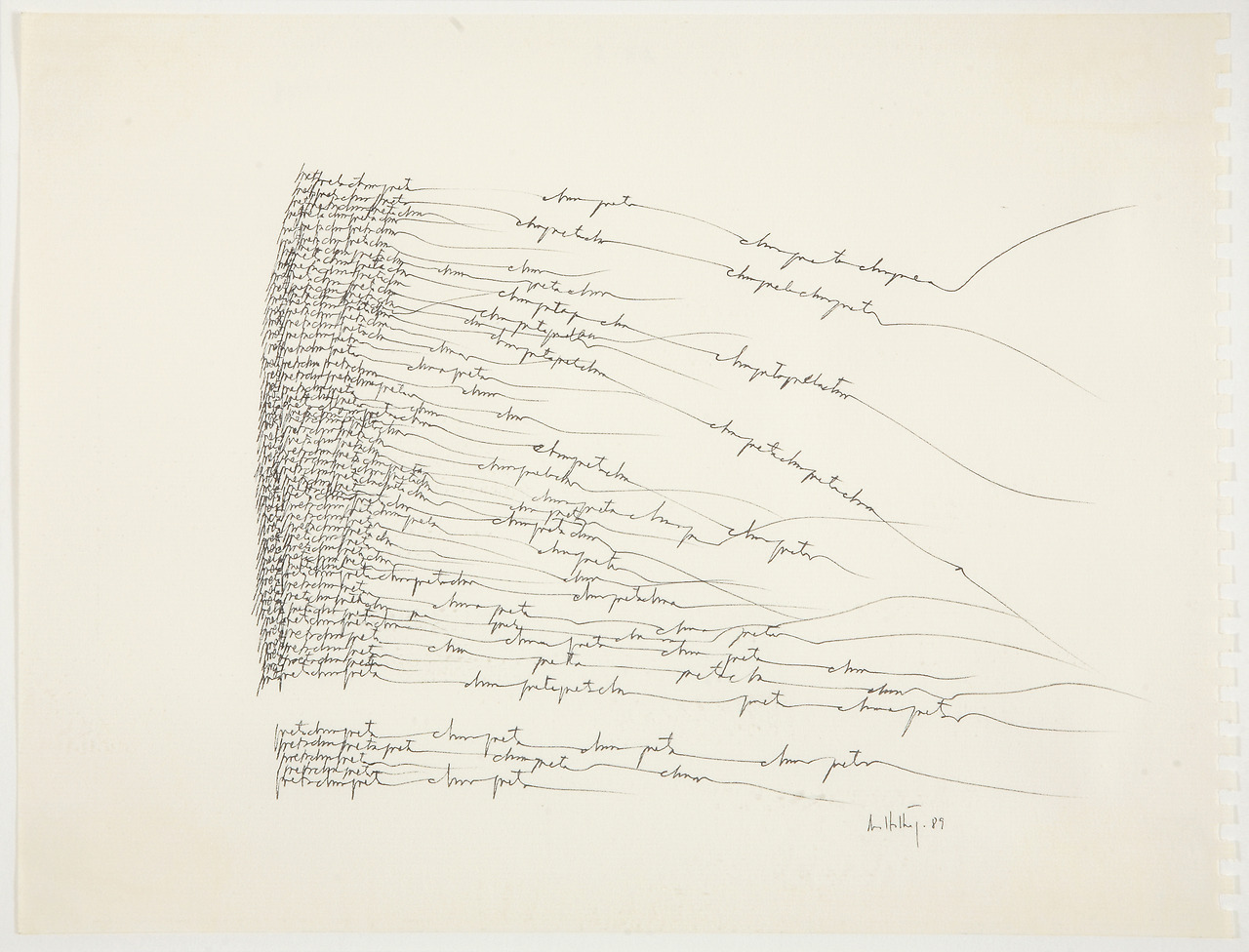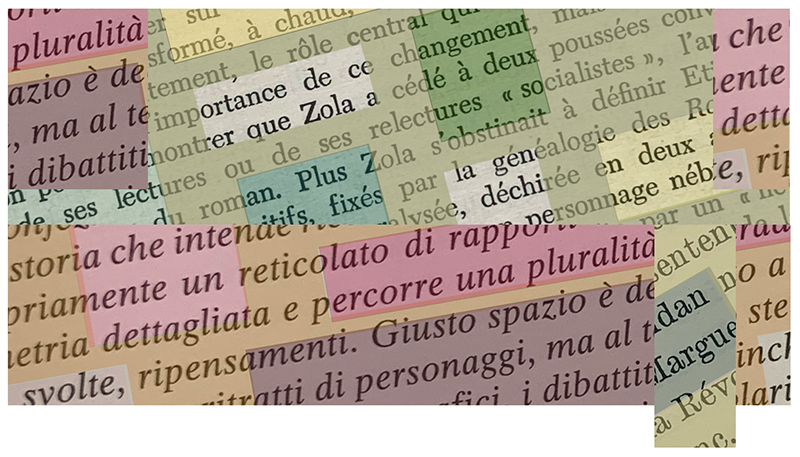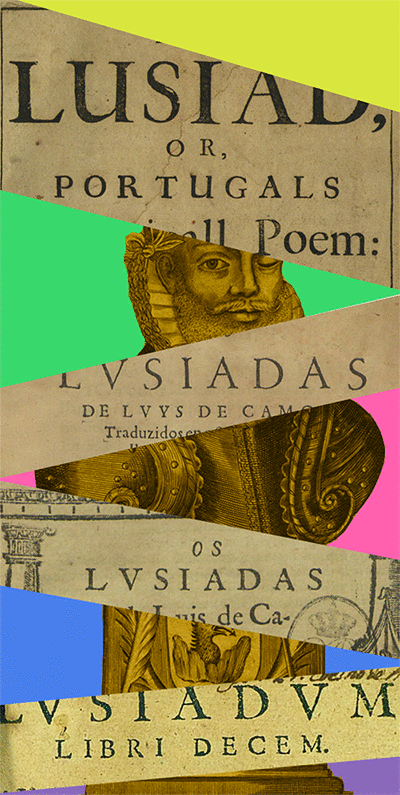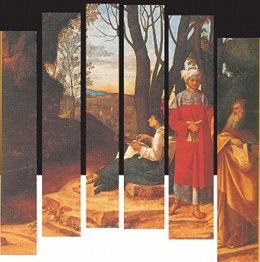Tag: Bibliographies
Revamped Guides for French/Francophone and Italian Literatures
A recent overhaul of the two literary research guides for French and Francophone Literatures and Italian Literature & Criticism first created quite a long time ago will improve navigation and discovery in these vast print collections. Over the course of the past year, we have critically reviewed the former guides, weeded outdated resources, and replaced them with more current content with links to digital resources when available.
These two literature research guides are now benefiting from the LibGuides platform, which makes it much easier to revise than the former PDFs. Each guide is structured by sections for article databases, general guides and literary histories, reference tools, poetry, theater & performance, and literary periods. They interface seamlessly with related guides published by the UC Berkeley Library. For example, on the home page of each LibGuide, there is a prominent link to the lists of recently acquired publications in both French and Italian, making it even easier to stay current on new books in any particular call number range.
Because the guides are much easier to update, they encourage user interaction and invite community suggestions for inclusion (or deletion).
If you have time over the winter break, please take a whirl and let us know what you think. We’ll be unveiling a similar guide for Iberian Literatures & Criticism this spring!
Orienting Os Lusíadas @ 450
This online bibliography brings together resources and scholarship to mark the 450th anniversary of the publication of The Lusiads (Os Lusíadas), the magnum opus of Luís Vaz de Camões (c. 1524/5–1580), an epic that “sings” the story of Portugal’s colonial expansion. Long revered as the most important work in the Portuguese language, it draws inspiration from Greco-Roman epics such as Virgil’s Aeneid and Homer’s Iliad and Odyssey as well as Persian and Hindu mythology. The ten cantos which structure the long narrative poem are in ottava rima and total 1,102 stanzas.
The Lusiads form a key pillar of an entire mythos constructed around nostalgia for the empire, though one that has received increasing critical attention in scholarly and political circles alike. Anthony Soares, for example, highlights the material and bodily violences that lie behind discursive elements of the text’s poetic cantos. Other scholars have traced the Persian and Indian lyric influences in the text (notably Hāfiz and Omar Khayyam), interpreting the national epic against itself. Some have even identified critiques of Empire, as well as satirical treatments of etymologies and ancestral pretenses, within the text itself, calling into question the poet’s own consent for his work to be interpreted as the uncritical pro-imperialist national epic, par excellence. As 2022 marks the 450th anniversary of its publication, new scholarship (see Camões at Harvard: Navigating 450 years of Os Lusíadas) will continue to critically resituate The Lusiads both in its historical moment and in Portuguese and global literature today.
We hope you make use of this bibliography which highlights resources in UC Berkeley’s distinguished Portuguese collection but also which provides access to open and freely available sources online.
Cameron Flynn
Ph.D. student, Romance Languages and Literatures
Claude Potts
Librarian for Romance Languages Collections
Ana Hatherly Bibliography + Conference/Symposium + Talk

In anticipation of the conference/symposium on Portuguese visual artist/poet/scholar/filmmaker Ana Hatherly (1929-2015), we’ve assembled a bibliography of works authored by and about her in the Berkeley Library. Hatherly was one of the pioneers of the experimental poetry and literature movement in Portugal and already well-known in Europe before earning her PhD at Berkeley in 1986. Many of the books in the collection came to the Library through her dissertation advisor Arthur Askins who maintained close contact with her after she returned to Portugal. Other books were acquired more recently through the support of the Portuguese Studies Program in the Institute of European Studies (IES) and from donors such as retired Berkeley librarian AnneMarie Mitchell.
Between the lines: Tradition and Plasticity in Ana Hathery | Entrelinhas: tradição e plasticidade em Ana Hatherly, which will take place this Friday, March 22 in Stephens Hall, is the third conference/symposium since IES and the Camões Institute in Lisbon inaugurated the Catédra Ana Hatherly, or Chair, in Portuguese Studies in 2017. Tomorrow morning, Patrícia Lino who is currently a Camões lecturer at UC Santa Barbara will give a talk in English on the poetry of Ana Hatherly in Barrows Hall that is free and open to the public.
BiGLI Online
The Library has begun a subscription to BiGLI Online which is the digital version of the fundamental print bibliography and discovery tool for the field of Italian language and literature – Bibliografia Generale della Lingua e della Letteratura Italiana. It includes texts, critical and historical surveys, philogical and linguistic notes, essays, monographs, bibliographic reviews, and more from 1981 to present. With the assistance of an international team of experts and co-published by the Centro Pio Rajna and Salerno Editrice in Rome, the BiGLI is regarded as “a census of the diffusion and dissemination of Italian culture in the world.”
Resource: Russian National Bibliography
The Library recently acquired access through EastView to the Russian National Bibliography.
Included in the resource are: the definitive reference guide available to Russian book publications; indices to Russian journals, periodicals, and newspapers; book reviews found in the central and regional Russian press; synopses of dissertations from the Russian Federation; an index to Russian music-related publications; and an index of visual materials published or appearing in books, collected works, and magazines.
All of these can be searched separately or together. Use the Keyword search box to enter the keywords for your search. To the right of the Keyword search box you can select whether you want to conduct your search in Russian, English, or Transliteration. One thing to note here — by using English keywords for your search, your search will be on English-language sources only. If you want to run a search in Russian, but do not have a Russian keyboard driver installed in your system, click “Russian Keyboard.” A small window will pop up with a Russian keyboard that will enter the text you type on it directly into Keyword search box.
Resource: International Bibliography of Humanism and the Renaissance
The Library recently acquired from Brepolis the International Bibliography of Humanism and the Renaissance, a multi-disciplinary bibliography of the Renaissance and the early modern period (1500-1700) that includes entries for monographs, critical editions, translations, anthologies, miscellanies and exhibition catalogs, as well as specialized dictionaries and encyclopedias, handbooks, journal articles and reviews written in any language and presented in any format.
It reproduces online and continues the Bibliographie internationale de l’Humanisme et de la Renaissance, coordinated and published by Librairie Droz since 1965 (and located in our collection in the MAIN (Gardner) Stacks at CB361.1 .B52). The rights to the resource were acquired by Brepolis in 2013.
According to the site, the “core of the Bibliography focuses on European history and culture that spans the 16th and 17th centuries, and encompasses a broad spectrum of subjects, ranging from religious history through to philosophy, science and the arts; and from military and political history through to social and gender studies. Both the geographical and the chronological delimitations are not restrictive as the IBHR also includes publications on the European interactions with the wider world through exploration, colonisation, slavery and the Christian mission and extends its coverage to the modern period with the inclusion of modern hermeneutics, reception studies and the 21st c. teaching of texts written in the target period.”1
Resource: Bibliographie de civilisation médiévale (BCM)
A new database acquired from Brepolis is the Bibliographie de civilisation médiévale (Bibliography of Medieval Civilisation) (BCM) which indexes monographs and miscellanies as well as book reviews. It complements and can be simultaneously searched with the International Medieval Bibliography (IMB).
BCM originated in the printed bibliography published in the Cahiers de civilisation médiévale between 1958 and 2009, Initially dedicated to the High Middle Ages, its scope has broadened to cover Late Antiquity to the Late Middle Ages (300-1500). Continued selection and indexing of sources for the BCM is carried out at the Centre d’Études Supérieures de Civilisation Médiévale. Bibliographic entries reflect the language of the original work, but the indexing of subjects and locations is in English.
In addition to standard limiters such as publication date and language, the Advanced Search option allows you to narrow your search to an academic discpline, geographic area, and range of centuries. UC-eLinks is enabled to facilitate retrieval of subscribed online sources.
New tools from Brepols
The Library has recently subscribed to six new databases from Brepols – distinguished publisher of works in the humanities from Antiquity to the Early Modern period. Among the new databases is the Bibliographie de civilisation médiévale (BCM) which indexes monographs and miscellanies as well as book reviews. It complements and can be simultaneously searched with the International Medieval Bibliography (IMB).
The International Bibliography of Humanism and the Renaissance (IBHR) a multi-disciplinary bibliography of the Renaissance and the early modern period (1500-1700) which includes monographs, critical editions, translations, anthologies, miscellanies and exhibition catalogues to specialized dictionaries and encyclopedias, handbooks, journal articles and reviews written in any language and presented in any format. It is a continuation of the Bibliographie internationale de l’Humanisme et de la Renaissance, coordinated and published by Librairie Droz since 1965.
Patrologia Orientalis is a collection of patristic texts from the Christian East, including works, recorded in non-Latin languages, that come from geographical, cultural, or religious contexts somehow linked to Rome or the Eastern Roman Empire. The Dictionary of Medieval Latin for British Sources (DMLBS) is the online version of the most comprehensive dictionary of Medieval Latin produced and the first ever to focus on British Medieval Latin. It is an addition to the Database of Latin Dictionaries (DLB) to which the Library already subscribes.
The Aristoteles Latinus Database (ALD) is the complete corpus of medieval translations of the works of Aristotle and the last addition is the Library of Latin Texts – Ser B. (LLT-B) supplements the LLT-A. The objective of LLT- B is to put a large number of Latin texts into electronic form, at a rapid pace, in order to meet the needs of students and researchers. LLT-A, LLT-B, and Patrologia Orientalis can all be simultaneously searched with the Cross Database SearchTool.
You can view all available Brepols databases from the BREPOLiS portal.
Resource: IsisCB Explore – Open Access version of the Isis Current Bibliography
Accessible to anyone on the web, IsisCB Explore is a completely open access service made possible by the History of Science Society with support from the University of Oklahoma.
IsisCB Explore is a research tool for the history of science, whose core dataset comes from bibliographical citations in the Isis Bibliography of the History of Science. The IsisCB currently contains 40 years of citation data from 1974 to 2014 and includes citations (items from the bibliography that have been classified and indexed) and Authorities (records that include both subject terms that classify citations).
IsisCB is built to work well with social media tools, so that the user community can actively participate in building the resource. After signing in to an account, users can provide comments, add further information, and suggest weblinks and other materials other scholars might find useful.
The resource currently includes:
- Nearly 200,000 interlinked bibliographic citations to books, chapters, articles, dissertations, and reviews from the Isis Bibliography of the History of Science 1974 to present. It will be annually updated.
- An authority index of over 150,000 curated entries. Includes historical concepts, persons, and institutions. Also indexes scholars, publishers, journals, and degree granting institutions.
- User accounts with the ability to save searches.
- Zotero integration. Allows users to save individual citations as well as collected results.
There are some instructional videos on the IsisCB Explore YouTube Channel.
Comics and Graphic Novels from Spain
Locating comics and graphic novels in the Library is hardly straight forward but this guide for recent publications from Spain is one of many short bibliographies to come. Francophone Europe and Italy are next! For more information, see the new Library Research Guide for European Comics & Graphic Novels.





